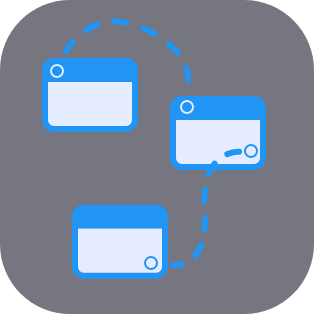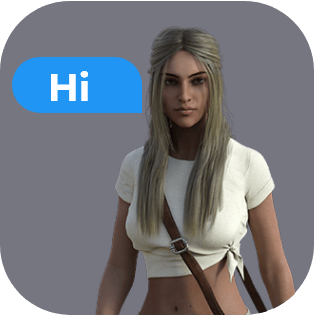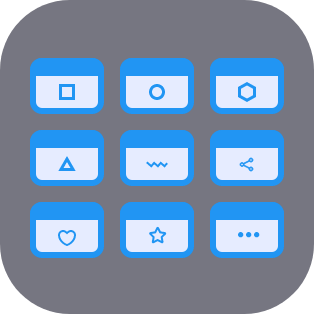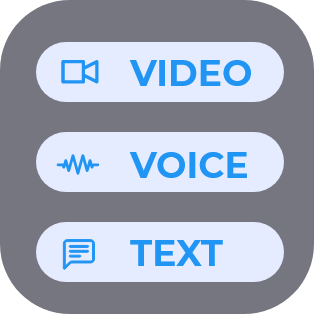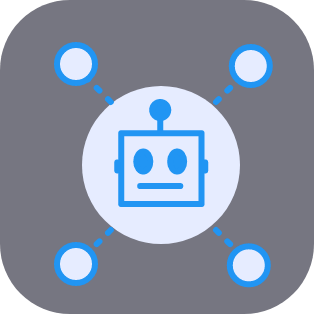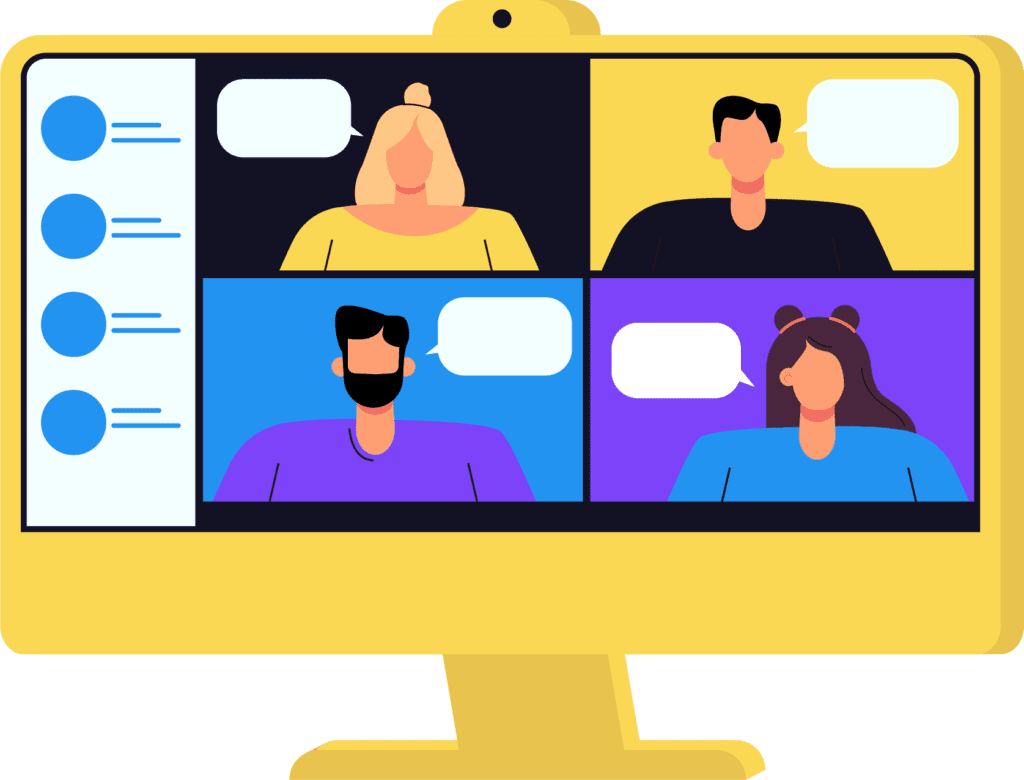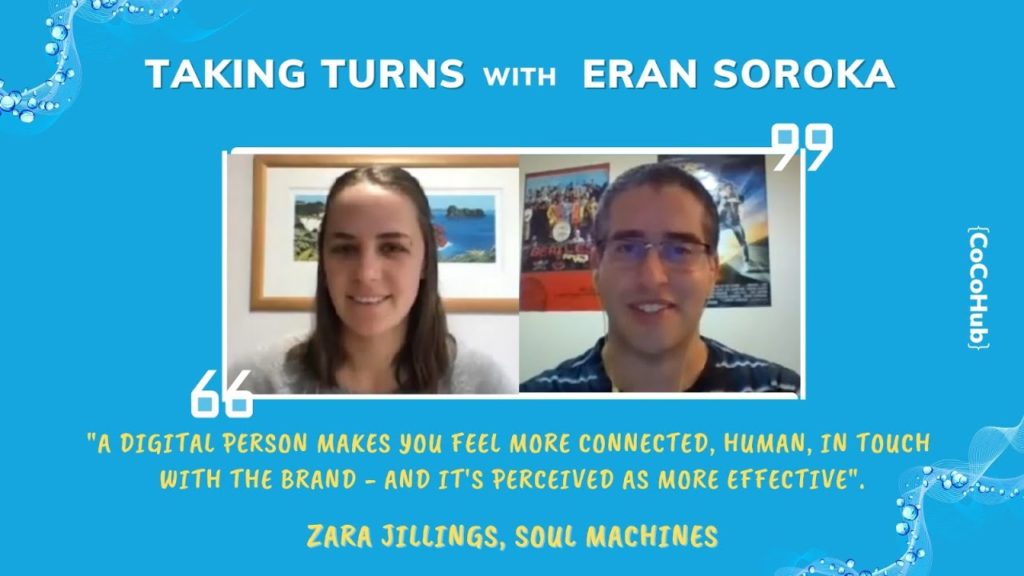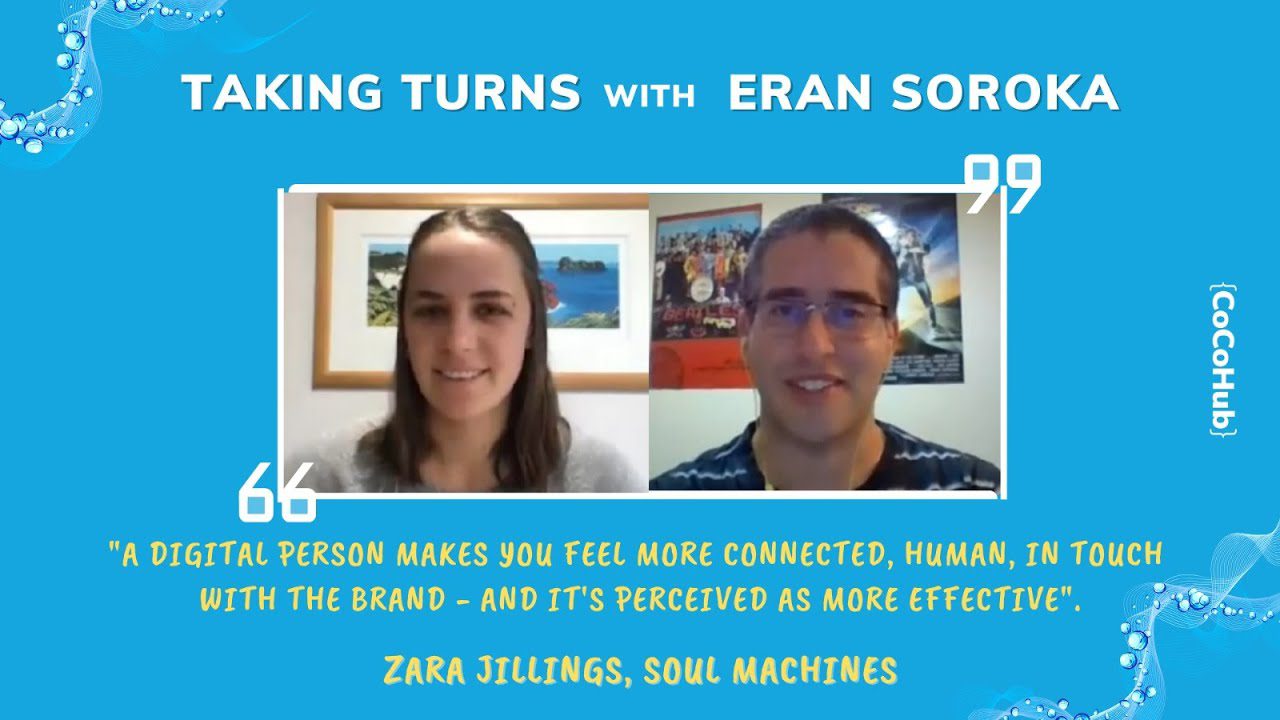Just 8 months ago, Zara Jillings was still dressing up for basketball games – fighting for rebounds and directing the offense for Fordham university at the Atlantic 10 tournaments. Instead of digital people, she managed partnerships in pick’n’rolls or in a zone coverage. After the Coronavirus cut the NCAA season short, the junior point guard decided to pivot. She had a successful career, representing New Zealand at international tournaments, and appeared in all 100 of her university’s games in those 3 seasons.
However, that’s when her major in information technology became the point guard’s new starting point. Today, Zara works at as a partner account manager in Soul Machines. That’s a conversational AI company that creates “Digital Persons”, an advanced human-like conversational interfaces – and helped New Zealand handle the Coronavirus crisis in an admirable way. Now, in the Sweet-16 episode of Taking Turns, she got the court to tell her story.
• HOW DID YOU make the transition from basketball to CONVERSATIONal AI?
If you asked me a year ago, would I be here? I definitely wouldn’t have. I didn’t know much about conversational AI, and I was very focused on basketball and on studying. So I did do a Master in information technology, that was the start of what got me into this this area. Then, I found some people in Soul Machines. I was able to begin working with them, absolutely fell in love with company and the digital people, fell in love with what we’re doing, and it’s really just snowballed from there.
So I’ve been able to take a lot of different things in my stride. The basketball is very much the pathway that got me here. And now that I’m at Soul Machines – I’m just loving it and making the most of every minute.
• Can you see similarities between those two distant worlds? Any practices from basketball you were able to implement in Soul Machines?
At first glance, there’s probably isn’t anything similar. But when you think about it a little more and dive deeper, there’s stuff that just does make sense. So in basketball, as in any team sport and in any team business, being able to communicate is so important. Now, taking some of those skills across to the conversational AI and sort of knowing different ways that people talk and might listen, is really helpful. And in general, I’m lucky that my time management skills were pretty good. Because it was a busy lifestyle as basketballer and it’s still busy lifestyle now, but it definitely played me well.
Do you want a chatbot connected to a phone in your business? Here’s how to do it.
• Why IS SOUL MACHINES concentrating on the aspect of Digital people?
In Soul Machines, we create astonishing digital people. And what’s really powerful about this, is that in an age where so many of our interactions are becoming mediated by technology or in a technology, or in a Covid world when you can’t really go and interact face-to-face with a lot of people, having a digital person allows you to humanize some of those interactions.
So from a brand standpoint, you could have a Brand ambassador that interacts with customers seamlessly across all channels. Whether it be mobile, online, installed by your kiosk. What’s unique about Soul Machines’ digital people is that you have an emotionally responsive interaction, something that can be really really engaging. As a result, you feel more connected, more human, more in touch with the brand. Hence, it’s perceived as more modern and more interesting, more effective.
All of those things make a digital person a really great way to go about some standard things that might be handled simply by chatbot, or by live agent. Here you’re having the best of both worlds; Obviously you can still pass on to a real human if that’s necessary in any instance.
💬 Previously on Taking Turns – Check out the whole playlist 💬
Maciej Maliszewski: “Chatbots can be the most important business channel”
How the Roo Chatbot is creating and reflecting a societal change
Rebecca Evanhoe: “Context is the most important thing for voice“
Emiel Langeberg: “Voice Tech can be also a research tool”
• from your experience, Are people more likely to chat with a human-like chatbot then with the a regular chatbot icon??
Definitely, we found that people definitely like the more human and interactive experience. Sometimes you can get a little annoyed if a chatbot ask the exact same thing all the times; That’s not to say that a digital person might not mis-hear you in some instances, or might not understand exactly how to reply. However, in most cases by having an interaction with a digital person, people do feel like it’s more natural rather than talking to just a chatbot. It has its benefits across the board. Personally, I know about digital people, I love going talking to Soul Machines’ digital people. I love seeing what they’re doing in the wild. So, it’s really amazing.
By interacting with a digital person, people do feel like it’s more natural, rather than talking to just a chatbot.
ZARA JILLINGS
• we’re all jealous of the way that your PM, Jacinda Ardern, handled the Corona crisis. you created a digital person called Bella to help fight Covid. Can you talk about its impact?
Bella was a digital person that we created right back at the start of the pandemic, in April. There was so much misinformation, both across the globe and within New Zealand. And people just didn’t understand what the different Coronavirus measures meet. So in New Zealand, we had an alert level system that went from 1-4. And so, what Bella was capable of doing is telling people: This is the alert level we’re at; This is what it means. If someone asks, ‘Hey, can I get a haircut?’, Bella would know the answer and be able to share that with you.
And again, all of this was done with sort of her past personality mixed in. So rather than saying, ‘No, you can’t’, or ‘Yes, you can’ to the haircut question, she’d say something like – She’d say something like, ‘uh, that’s what everyone’s been asking me. I don’t have to worry about it because I hear doesn’t grow, but you can get a haircut starting next week’. So it was really fun.
In addition, focusing on that Coronavirus aspect, people could ask questions. They could ask about symptoms and treatment, where to go for help and what number to call. We found that that was really useful and really utilized by a lot of people. The Corona era made so many people feel lonely or isolated. And people had businesses that were really struggling. So we made Bella more of a holistic Kiwi digital Helper and digital friend.
CoCo & Co Content reCommendations
- How AI is making an impact on incumbent industries?
- Soul Machines’ Kent Morita: When should a chatbot use humor?
- How can Conversational AI help in the fight against the Coronavirus?
- Check out our conversational AI glossary
She had information and support on mental health tips and resources. There’s the really pioneering expressing kindness challenge. You can come back within three days, talk to Bella and get a different challenge to go. You could learn about expressing a little bit more kindness, appreciation, gratitude. And how all of that can help you both physically and mentally. Then, from business standpoint, we interviewed a lot of Business Leaders throughout New Zealand. We got their advice and support for – ‘What can I do right now? It feels like my business is just going down the drain’.
So people had a lot of really great engagement with Bella across the board. Definitely, we were proud to put her forward as sort of – Soul Machines is here to help. At this time, we want to do what we can to make a difference.
With Bella, we got advice and support from business leaders in New Zealand, for people who felt that their businesses are ‘going down the drain’.
– ZARA JILLINGS
• What can you tell people who are deterred by the blurring boundaries between regular people and digital people – the moral Panic of “bots will replace us”?
People will always be skeptical about new technologies, and digital people are still very much at the frontier of what’s happening. And I think five years from now, this will be more commonplace; Since we were founded at 2016, five years ago these sort of things barely existed, especially at Soul Machines’ level.
At the moment, people have those concerns and might think it’s a little bit freaky or scary. However, we’ve actually found that talking to a digital person, after a minute to two minutes, those sort of perceptions really fade away. People find the experience again to be engaging and interesting – rather than being weird, as prior to speaking to what you might have thought.
Then, on general level, the fear about automation or robots – ‘Oh, they’re coming for our jobs and being able to think for themselves!’ That is all still – as far as I understand – definitely further away. Right now we’re in this space of more ‘narrow AI’. Even within conversational AI, there is some conversation abilities that can generate what they’re going to say. But a Soul Machines digital person is what we call like a truth teller; They’ll say exactly what that company or brand wants as their messaging. So they’re not going to come out in and talk about something else or try and take over.
Although it’s valid for people to have those fears, from my perspective, it’s not something to be too worried about. I want everyone to have really great experiences with digital people and to realize how powerful it can be.
• If somebody wants to rebound, go out on a transition and start a career at conversational AI like you – what tip can you give Them?
It’s a great question and, I do love the basketball analogy… for me, this came out of nowhere. And I’m so glad I found it. So if people are seeing this, I’m sure they’re already a little bit within that conversational AI space. The viewers know CoCoHub, now hopefully know Soul Machines and being interested in that. There’s just such a wealth of information available online, and so many different skills that now you can go and learn.
So I know that every day while I’m working, I’m still looking at other stuff. I’m still learning other stuff. And my learning has gone just through the roof. That’s really exciting for me. For everyone, everywhere, if you’re interested in the space, just throw yourself into it. Places like CoCoHub are doing amazing things and making it so much easier to be involved in conversational AI. Then come talk to Soul Machines and see what we’re doing. Then you can see how everything ties together to create those really powerful experiences.
• if I tOLD you that there is one NBA player who is a digital person and nobody knows it – Who would you bet on?
Hands down, LeBron James. That man, he’s not human. He has to be digital. He’s just crazy too unreal, too impressive, too talented. So maybe it would make me feel better if he was a digital person, because – yeah, as a real human person he is pretty phenomenal.
I would go with that Kawhi Leonard, you probably heard his laugh – it sounds robotic, it sounds like a glitch.
Yeah. He’s a bit of a robot. That’s actually that’s a sneaky one. Alright, Kawhi Leonard is definitely my #2.
Next week, we’ll have episode 6 of Coming To Terms with AI! In the meanwhile – subscribe to our YouTube channel | Join our Discord community | Sign up for our newsletter | Follow us on Facebook, LinkedIn, Instagram or Twitter

